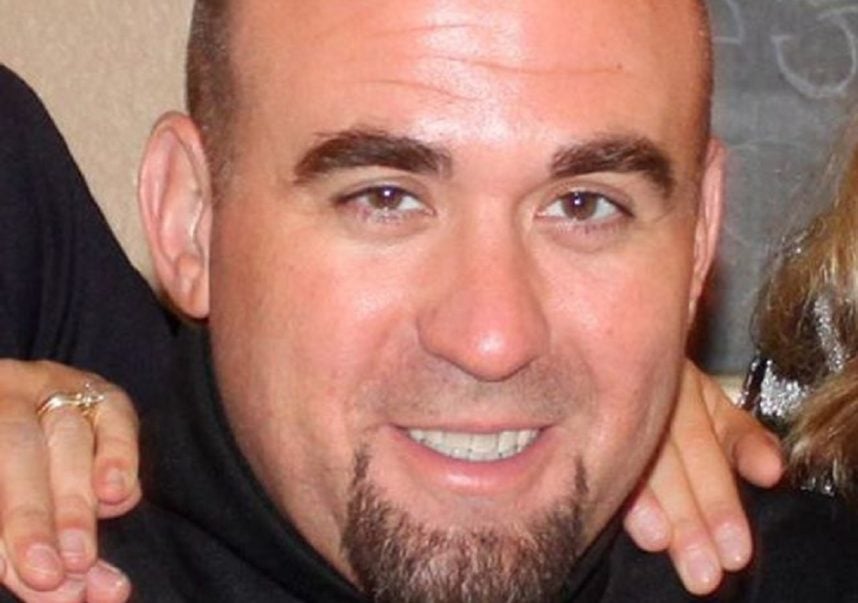Las Vegas-Based $500M Ponzi Scheme Leads to Lawsuit Against Wells Fargo
Posted on: May 8, 2023, 08:12h.
Last updated on: May 10, 2023, 04:50h.
A court action was filed last week against Wells Fargo Bank in connection with an estimated $500M Ponzi scheme allegedly operated by a Las Vegas-based lawyer.

The litigation was brought against the San Francisco-based financial institution by a court-appointed receiver, Geoff Winkler, CEO of American Fiduciary Services, who was directed by a federal judge to unravel the complex situation.
The suit claims the bank should have been aware of what was happening to the accounts used by Attorney Matthew Beasley. The accounts held money belonging to his clients.
From a bank’s perspective, the fraudulent scheme was obvious,” the lawsuit stated. “A Ponzi scheme of this magnitude cannot run surreptitiously through an IOLTA [Interest on Lawyers Trust Account] and various related-party accounts.”
Also, actions by bank employees provided “active assistance” to the scheme, according to the lawsuit.
A manager at a Wells Fargo branch in Henderson, Nev. let his bosses know about suspicious transactions, The Street reported. Other bank employees also noted their suspicions. In many instances, deposits into the account were made in Salt Lake City, Utah rather than in Nevada, which raised concerns.
In each of the multiple instances, however, Wells Fargo responded to the reports by directing the branch employees to execute the suspicious transactions,” the lawsuit claims.
With the large deposits in the account, Wells Fargo was able to earn money through interest fees.
Up to $10M is Unaccounted For
Somewhere between $460M and $500M was fraudulently obtained from investors in the plot, prosecutors said.
Winkler recently reported that between $7 million to $10 million that Beasley got is currently unaccounted for, the Las Vegas Review-Journal reported. Beasley has claimed he paid between $15 million to $20 million to a bookie “as a result of gambling debt and extortion.” At one point, it was estimated his gambling debt totaled $4M.
He allegedly purchased luxurious houses, a private jet, boats, and fancy cars with the money.
Prior Lawsuits
Last week’s court action isn’t the first lawsuit against Wells Fargo in connection with the scheme. In March 2022, investors filed a lawsuit against the bank and Beasley. Beasley was also sued by the federal Securities and Exchange Commission (SEC) last year.
In a separate criminal case, Beasley was indicted for five counts of wire fraud and three counts of money laundering for the scheme. The plot involved more than 1,000 victims and was marketed as a way to earn money from personal injury plaintiffs who wanted to get early payment of settlements.
The plaintiffs were willing to pay high interest rates to borrow the money for 90 days. Investors could “purchase interests” in the settlements and would receive at least a 12.5% return every 90 days, Las Vegas TV station KLAS reported, citing court documents.
Beasley used new investor money to pay interest and return principal to earlier investors to create the illusion that personal injury plaintiffs existed, according to an indictment.
Many of the victims were members of The Church of Jesus Christ of Latter-day Saints, also known as the Mormons, according to the Review-Journal.
Beasley was arrested in March 2022 after an armed standoff at his home, during which FBI agents shot him. He admitted to the Ponzi scheme while speaking to an FBI negotiator.
Beasley’s legal license was suspended after the allegations surfaced.
Beasley’s business partner, Jeffrey Judd, hasn’t been arrested in connection with the scheme, the Review-Journal reported. He has been identified as the owner of a company called J&J Entities.
In a statement to Casino.org, Wells Fargo spokesperson Laurie W. Kight declined to comment on the lawsuit, given that it is “active litigation.”
Related News Articles
Hampton Inn, Palms Under Fire for Failing to Prevent Teen Sex Trafficking
Most Popular
PUCK, NO! Health Dept. Closes Las Vegas Wolfgang Puck Restaurant
Jackpot News Roundup: Two Major Holiday Wins at California’s Sky River Casino
Oakland A’s Prez Resigns, Raising Questions About Las Vegas Move
MGM Osaka to Begin Construction on Main Resort Structure in April 2025
Most Commented
-
UPDATE: Whiskey Pete’s Casino Near Las Vegas Closes
— December 20, 2024 — 33 Comments -
Zillow: Town Outside Las Vegas Named the Most Popular Retirement City in 2024
— December 26, 2024 — 32 Comments -
Oakland A’s Prez Resigns, Raising Questions About Las Vegas Move
— December 27, 2024 — 9 Comments -
Caesars Virginia in Danville Now Accepting Hotel Room Reservations
— November 27, 2024 — 9 Comments
















Last Comments ( 7 )
My mother was dying of cancer when she purchased two 20K CD’s. They never asked her who her beneficiary would be. Well, she died without a will and 3 years later Im still in probate. The state of Texas took the unclaimed money & grown step kids I’ve never met, are fighting me for the money. My mother didn’t know anything about CD’s. Someone talked her into this and I’m sure she thought she was opening a bank account. Since she was weak, bald and dying. They knew it didn’t matter. I hate this bank and have complained to managers. Corporate in San Francisco and anyone else regarding banks.
How is Wells Fargo still allowed to be a bank? They're probably no different than the corruptions that exists at every other large bank, other than not being smart enough to cover their tracks.
I CALLED WELLS FARGO EVERY 2 WKS FOR SEVERAL YRS NOW FOR MY BALANCES. WELL I HAVE 2 CHECKING ACCOUNTS AN A SAVINGS WELL AS TGE PROMPT SAUD A 3RD ACCOUNT I WAS MORTIFIED. SONEONE OPENED ANOTHER CHECKING ACCOUNT IN MY NAME. THERE WAS A 0 BALANCE IN IT. SO THEY OFFERED ME AN APOLOGY BUT NO REASON. SO FOR UR INCONVENIENCE WE WILL BE SENDING U A CHECK FOR 60 BUCKS. THINK THIS HAPPENED YRS AGO WHEN THEY WERE STEALING. WELLS FARGO PUSHES THERE EMPLOYEES TO OPEN NEW ACCOUNTS. 1 OF MY RELATIVES WHOS A BRANCH MANAGER CALLED ME 1 DAY ASKED UF I HAD A ATM CARD I SAID NO. HER RESPONCE WAS CAN WE SIGN U UP FOR ONE. WERE 2 PEOPLE SHORT. SO NOW IM IN TGE MIST OF CLOSING ALL ACCOUNTS THERE AN MOVING MY SAFETY DEPOSIT BOX ALSO. IM IN NJ THEY ALREADY CLOSED 3 BRANCHES IN A 5 MILE RADIUS. THE 1 BAD THING IS I HAVE MY MORTAGE WITH THEM . I ONLY OWE 105.000
Yet millions of fools still bank with Wells Fargo, the bank is not the problem it's the people that keep on banking with them. How many times does Wells Fargo have to screw with people before customers get it through their tiny brains that Wells Fargo is a total fraud.
And yet... Wells Fargo refused to help me out, a customer since 2004, when my cell phone was stolen less than 30 days after Ii purchased it with my WF ATM Visa. Unable to return the phone to the retailer, they wouldn't help. So, thinking my money was insured by FDIC at my bank I filed a claim for $149.00. They immediately issued a credit. 6 weeks later, with no notice, 2 days before my pay day, they withdrew the $149. I found out when the credit department called me and asked when I would be able to pay the $200+ I owed Wells Fargo. I said WHAT? I don't owe WF any money! What are you talking about? Since March 28 I've gone around and around with them. 2 days before my pay day? $200+ ??? Besides, if this situation doesn't say "insurance" on it, I don't know what does! They won't budge. They took the $149 on April 1st. I've called and talked to do many people it's not even funny. To no avail. Having my phone stolen was traumatic. My checking account is linked, various online accounts, my fb and google account passwords were changed, it took 3 months to get back to my fb. 4 weeks w google. Cash app was used to access my checking account and purchase made. Cancelling a number I had for 5 years was the cherry on top. I've only just today gotten a decent phone. Thanks Wells Fargo for victimizing me further. You're fired!
WELLS FARGO AT IT AGAIN.
All BANKS/BILLIONAIRES/TRILLIONAIRES R CROOKS.. This Is What The Wealthy EDOMITES PIRATES Do..